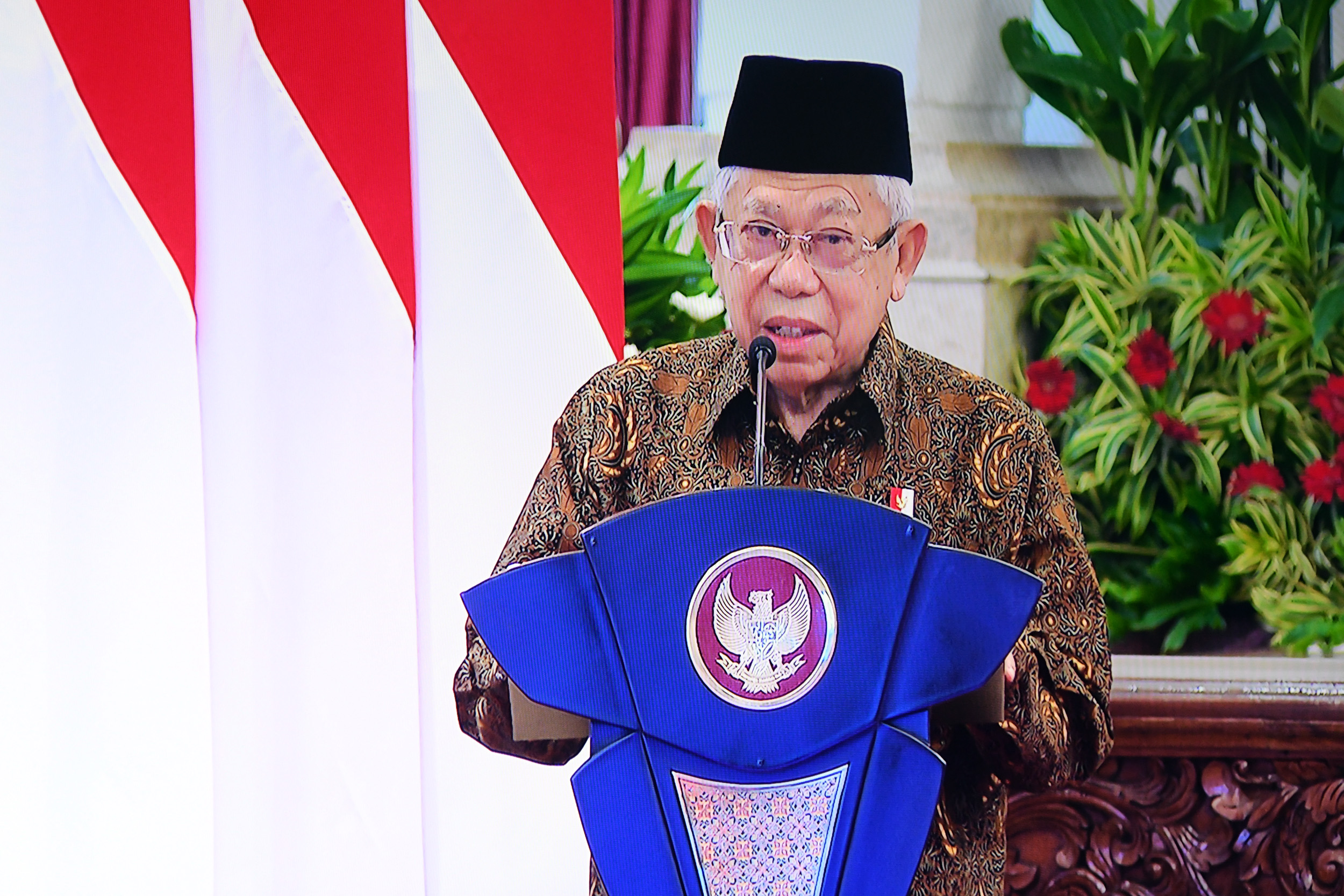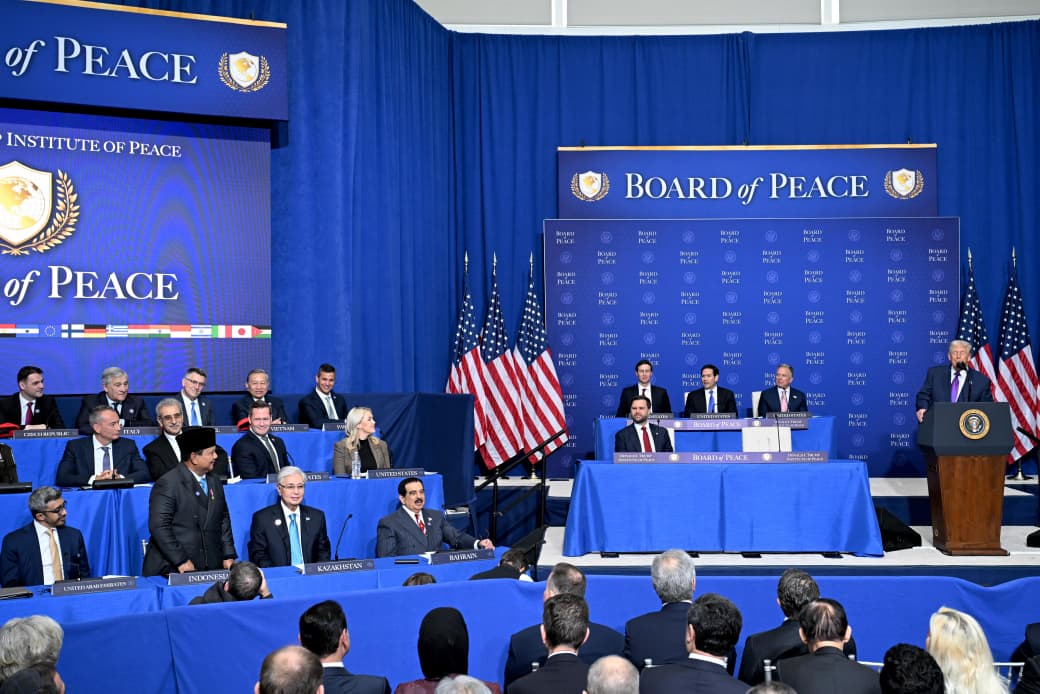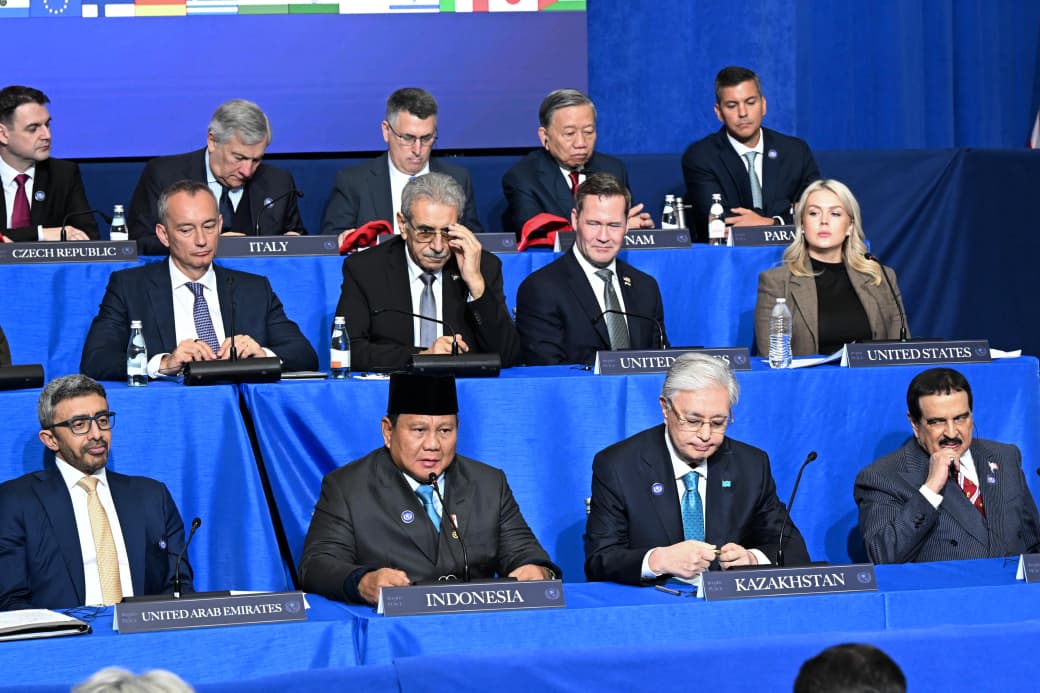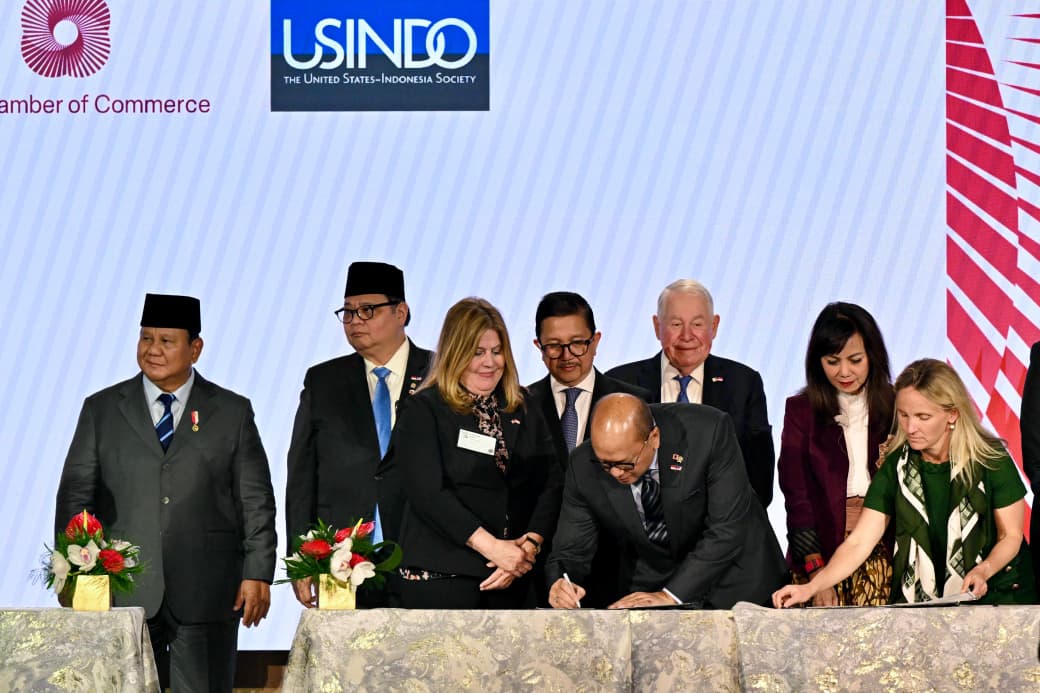Cash Waqf National Movement Marks Start of Waqf Transformation: VP

Vice President Ma’ruf Amin at the launching of the Cash Waqf National Movement and Sharia Economic Brand, at the State Palace, Jakarta, Monday (25/01). (Photo by: Public Relations / Rahmat)
The National Movement for Cash Waqf launched by President Joko “Jokowi” Widodo marked the beginning of a broader and modern transformation of waqf management in the country, Vice President Ma’ruf Amin has said.
According to the Vice President, the transformation comes in waqf types and waqf governance reforms.
For the record, a waqf is an inalienable charitable endowment under Islamic law. It typically involves donating a building, plot of land or other assets for Muslim religious or charitable purposes with no intention of reclaiming the assets.
“In accordance with Law Number 41 of 2004 on Waqf, waqf property is expanded not only to immovable objects such as land and buildings, but also to movable objects in the forms of money and movable objects other than money such as vehicles, machines, precious metals, and sharia securities,” the Vice President said during the launching of the National Movement for Cash Waqf and Sharia Economic Brand at the State Palace, Jakarta, Monday (25/01).
Governance reforms on cash waqf as a form of productive waqf, the Vice President continued, was initiated by the National Committee for Islamic Economics and Finance (KNEKS) and the Indonesian Waqf Board (BWI).
As a starting point, state-owned bank Bank Syariah Mandiri will act as a Sharia Financial Institution for Receiving Cash Waqf (LKSPWU) and Mandiri Investment Management as a manager of waqf funds, the product of which is called ‘Cash Waqf Blessing for the Ummah’.
“A more professional and modern management of cash waqf is expected to boost simultaneous mobilization of economic resources that can be used to boost investment and economic activities in the communities,” he said.
Considering that a waqf is usually donated by those who are socially and economically established, it is hoped that a professional management of waqf will attract upper middle class people to donate waqf, such as corporations, individuals with large assets, socialites, and millennials, he added.
“With more and more people participating in waqf donation, we hope that a host of programs and activities can be developed to empower people including the Ummah. Thus, it can help improve the economic welfare of the communities so that it brings an impact on reducing poverty and inequality,” he said.
The Vice President also pointed out that management of cash waqf needs to be supported by expansion of channels for receiving cash waqf, especially by boosting a greater role of Islamic Financial Institutions Receiving Cash Waqf (LKSPWU), namely Islamic banks and Islamic microfinance institutions.
“This Islamic microfinance institution can be used as a place for receiving community-based cash waqf. So, the existence and active role of Islamic microfinance institutions must be evenly spread to serve people who want to have donations throughout the country,” he said. (BPMI SETWAPRES/UN) (MUR/EP)







